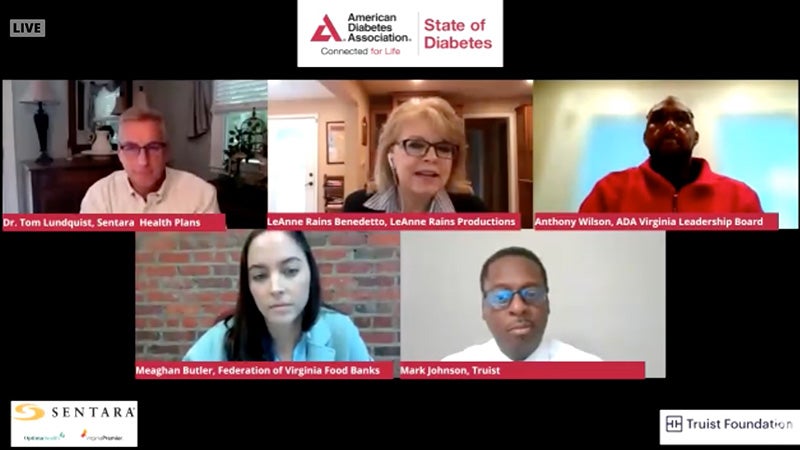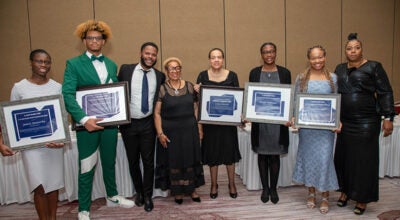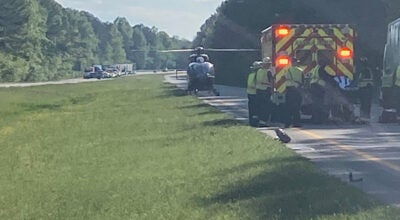Panel discusses health in Virginia
Published 5:27 pm Tuesday, November 9, 2021

- Panelists Dr. Tom Lunduist, Anthony Wilson, Meaghan Butler and Mark Johnson talk with moderator LeAnne Rains Benedetto in the 2021 State of Diabetes: Virginia live stream.
|
Getting your Trinity Audio player ready...
|
November is American Diabetes Month, and the American Diabetes Association wants to make sure folks know how to best take care of their bodies to prevent or fully live with diabetes.
A panel held a virtual meeting for the 2021 State of Diabetes: Virginia on the ADA website to discuss and highlight relevant health issues in the commonwealth, including diabetes, obesity and health overall. According to the ADA, 122 million people live with various types of diabetes and there are millions of others living at high risk.
The theme of the discussion was Health Equity Now. The discussion followed a video from the ADA highlighting the inequity in health care that the pandemic has highlighted. With varying areas of expertise, the panel discussed how to combat this issue.
Panelist Meaghan Butler, health equity projects manager at the Federation of Virginia Food Banks, noted how food insecurity could affect those who may be at risk for diabetes, as they are two times as likely to develop the disease. In light of this, the Federation has taken a step past food stability to nutrition stability.
“We define it as having consistent access, availability, affordability to desire foods, which includes culturally relevant foods and beverages that promote wellbeing,” said Butler. “So it’s really a step beyond food security. It’s recognizing that if we want to improve health equity, we have to one, prioritize not just the quantity of food available but also the quality of food available and two, to alter the foods environment so that the healthy choice becomes the easy and more desirable choice so that everybody can easily attain their highest level of health.”
Mark Johnson, vice president and community development manager at Truist, spoke on how the company gave back to the community and helped embed racial equality. Black people are twice as likely to develop diabetes. In 2020, Truist Foundation donated $161.3 million worth of grants to local nonprofits. According to Johnson, 53% of the grants served Black, Hispanic and other multicultural individuals and families.
The panel also discussed how the pandemic has affected those living with diabetes and at risk for diabetes. This brought to light where health equity is lacking in the system. Panelist Thomas Lundquist, chief medical officer for Sentara Health Plans, discussed these gaps and how they affected the most vulnerable.
“When it comes to health systems and health plans, first and foremost in our minds is always access,” said Lundquist. “We want our members as a health plan and our patients in the health system to have access and be able to see their physicians and their providers as easily and as frequently as they need to.”
Many people with diabetes rely on frequent checkups to make sure their levels are as they should be. The growth of telehealth appointments gave the ability to many to stay on top of their health. Anthony Wilson, the co-chair for ADA Virginia Leadership Board, briefly spoke on how telehealth allowed him to keep his diabetes under control even when he couldn’t go in personally.
Wilson also highlighted the many programs that ADA helps youth and adults manage their diabetes. The ADA has also partnered with area companies and organizations to tackle the crucial health issues that are impacting Virginians today.
“No one individual organization can tackle health issues we are facing alone. It’s critical, I mean criticalm for us to come together to share resources, share best practices and new and innovative ideas and successes. You have to come together.”






